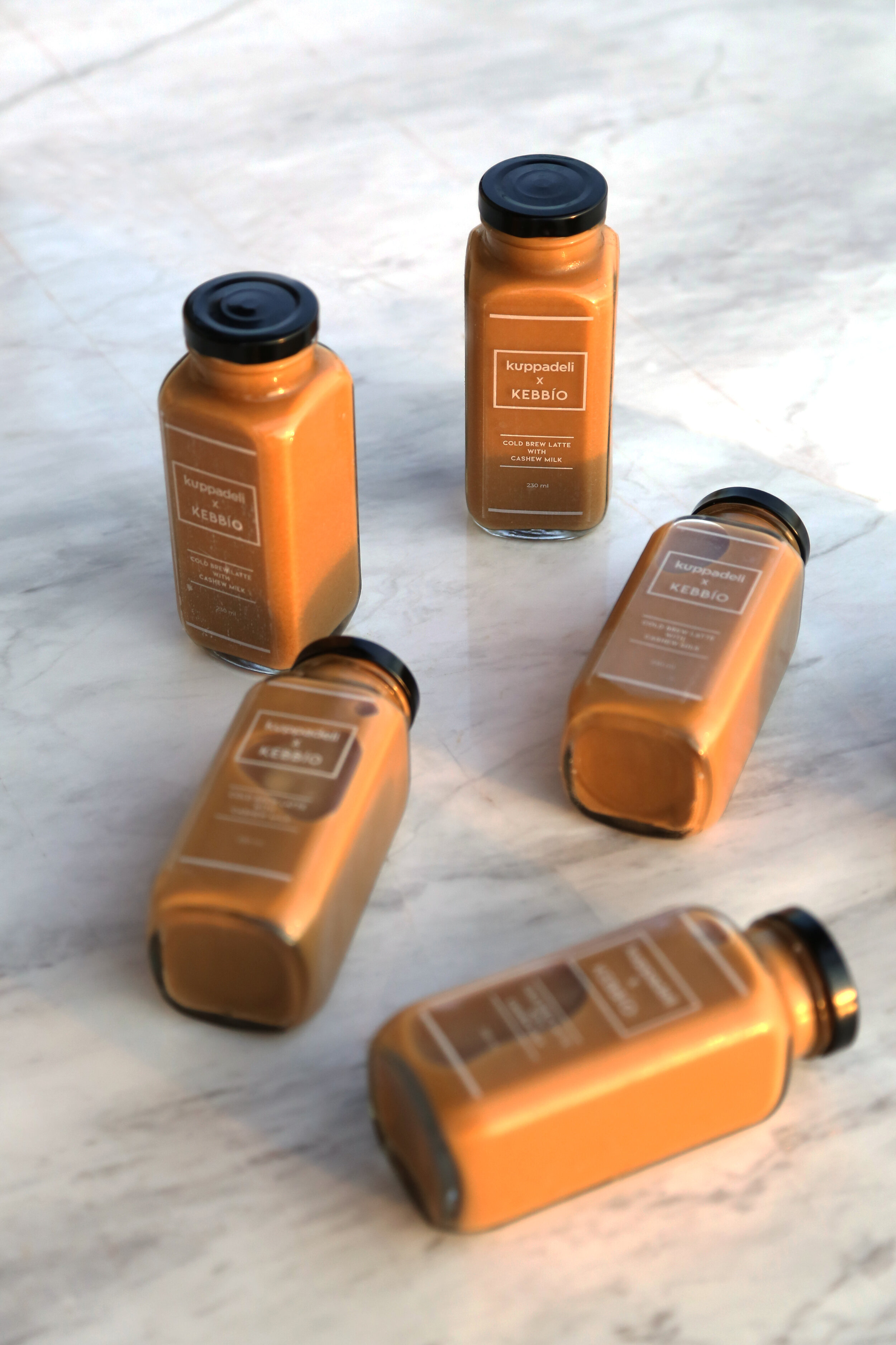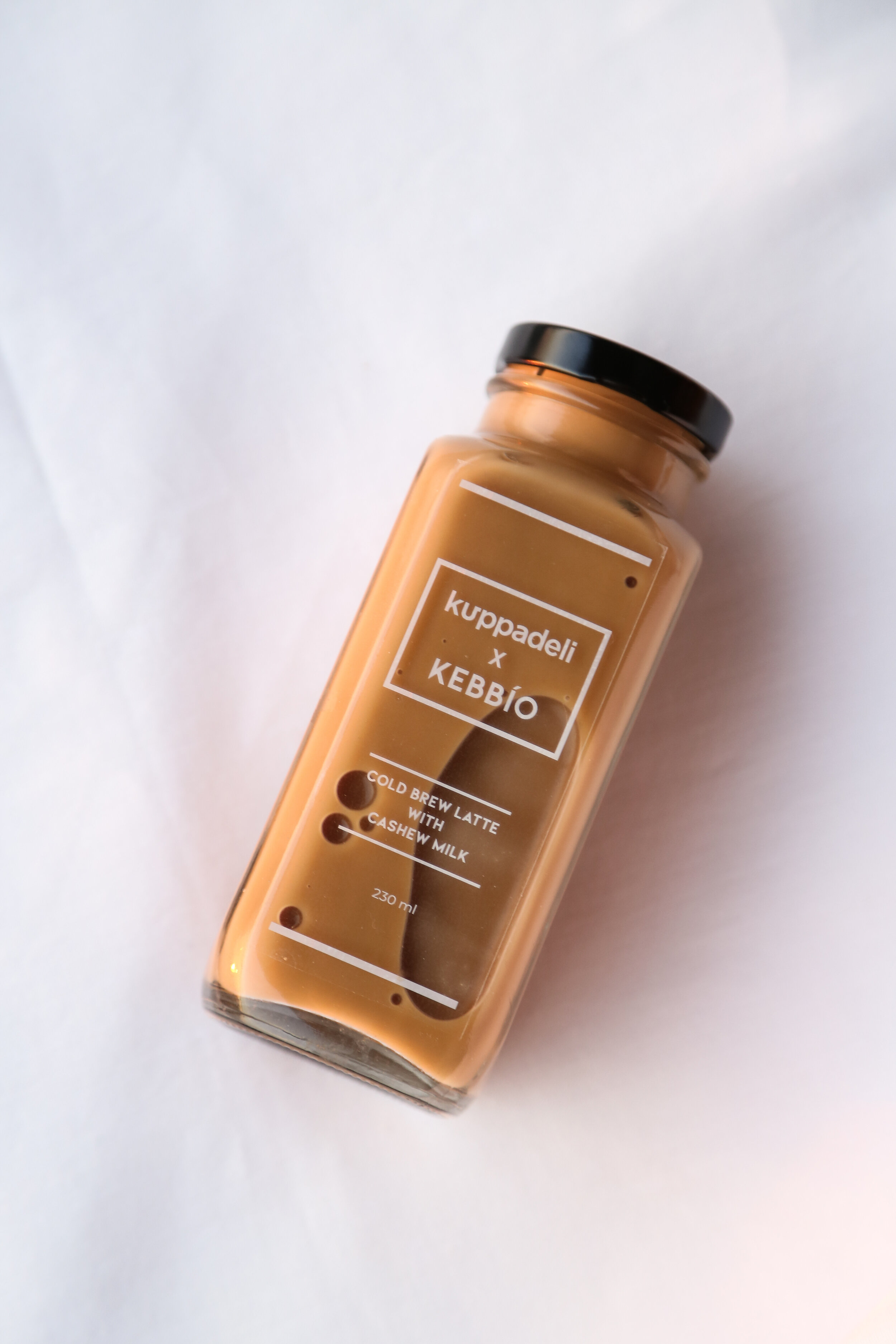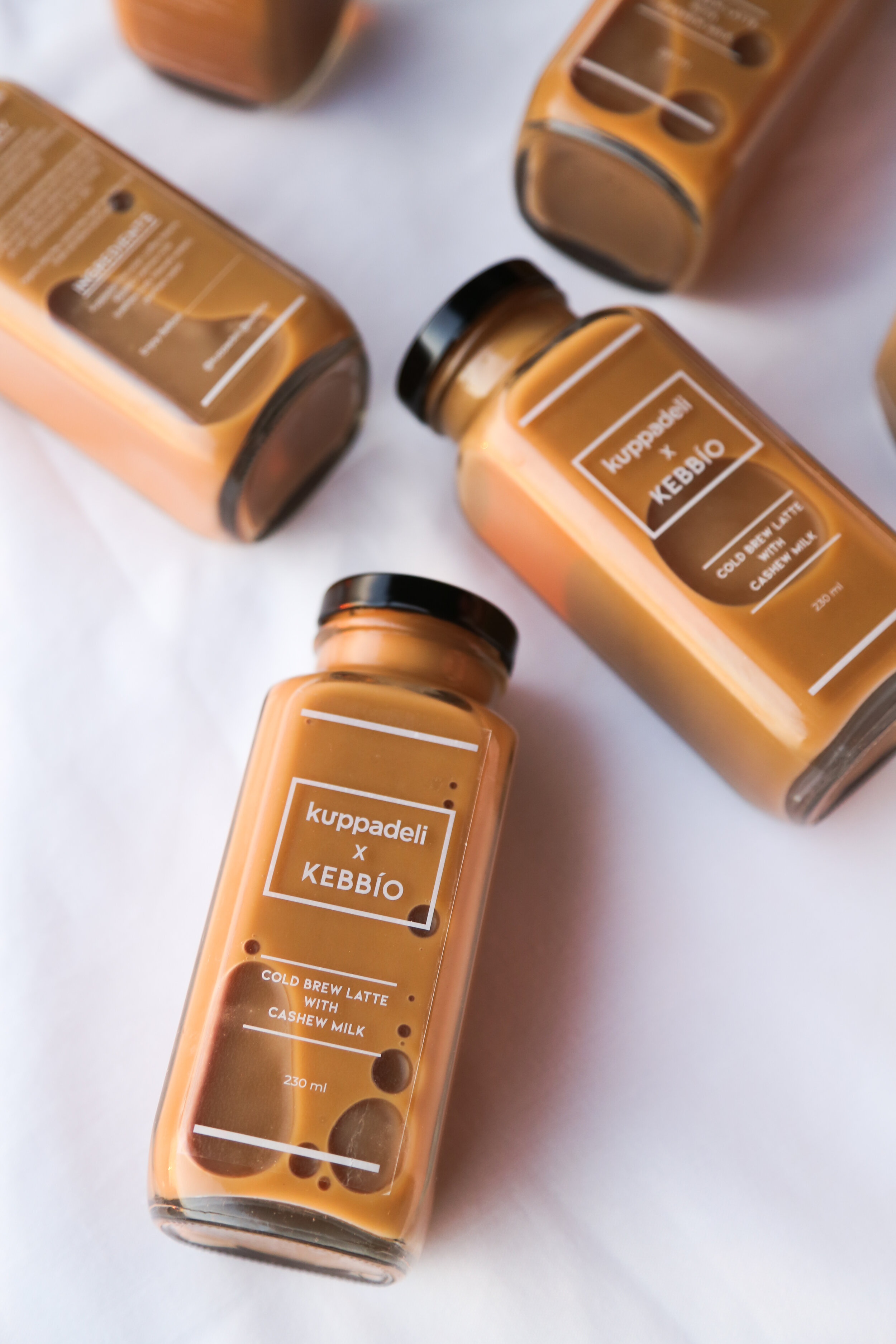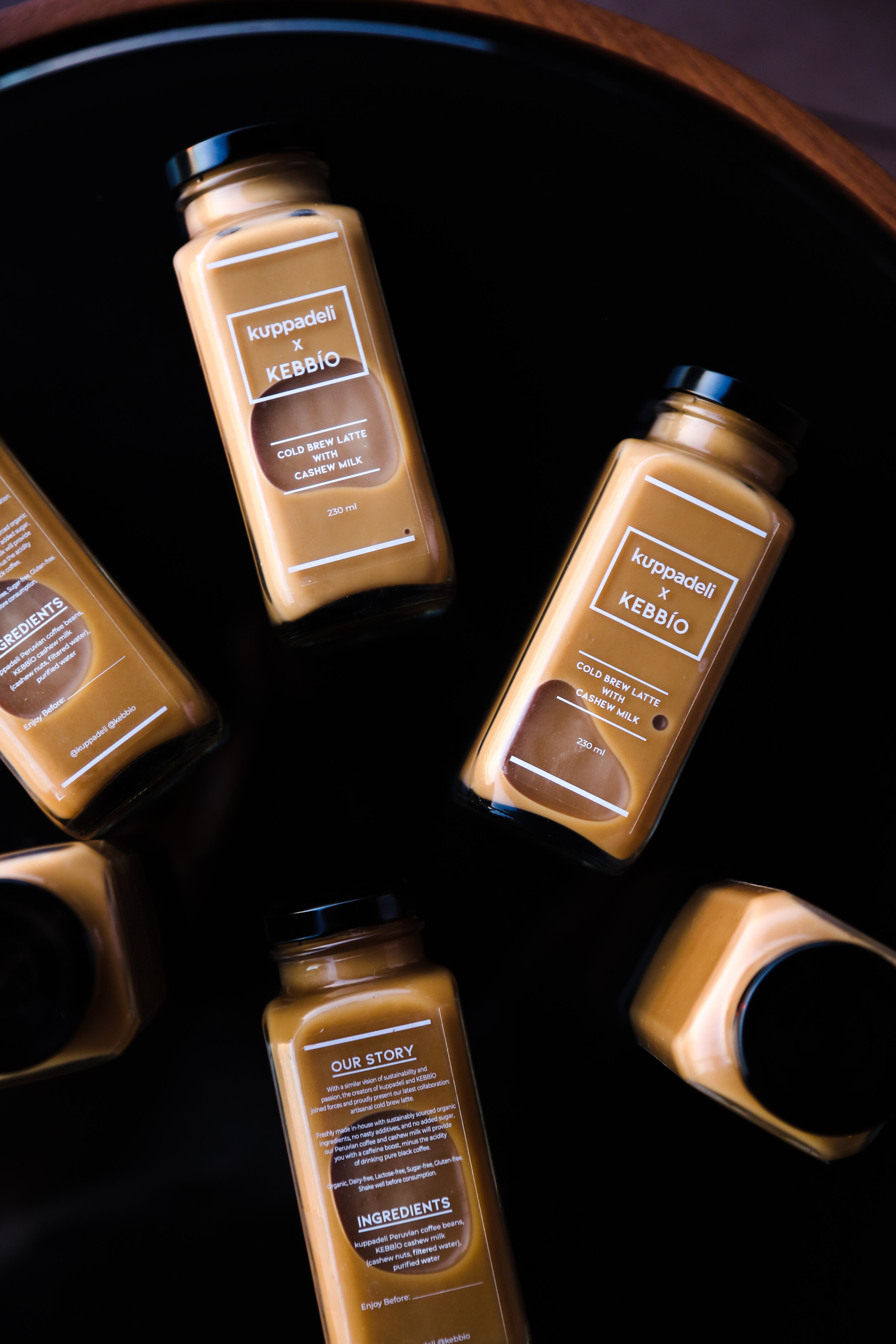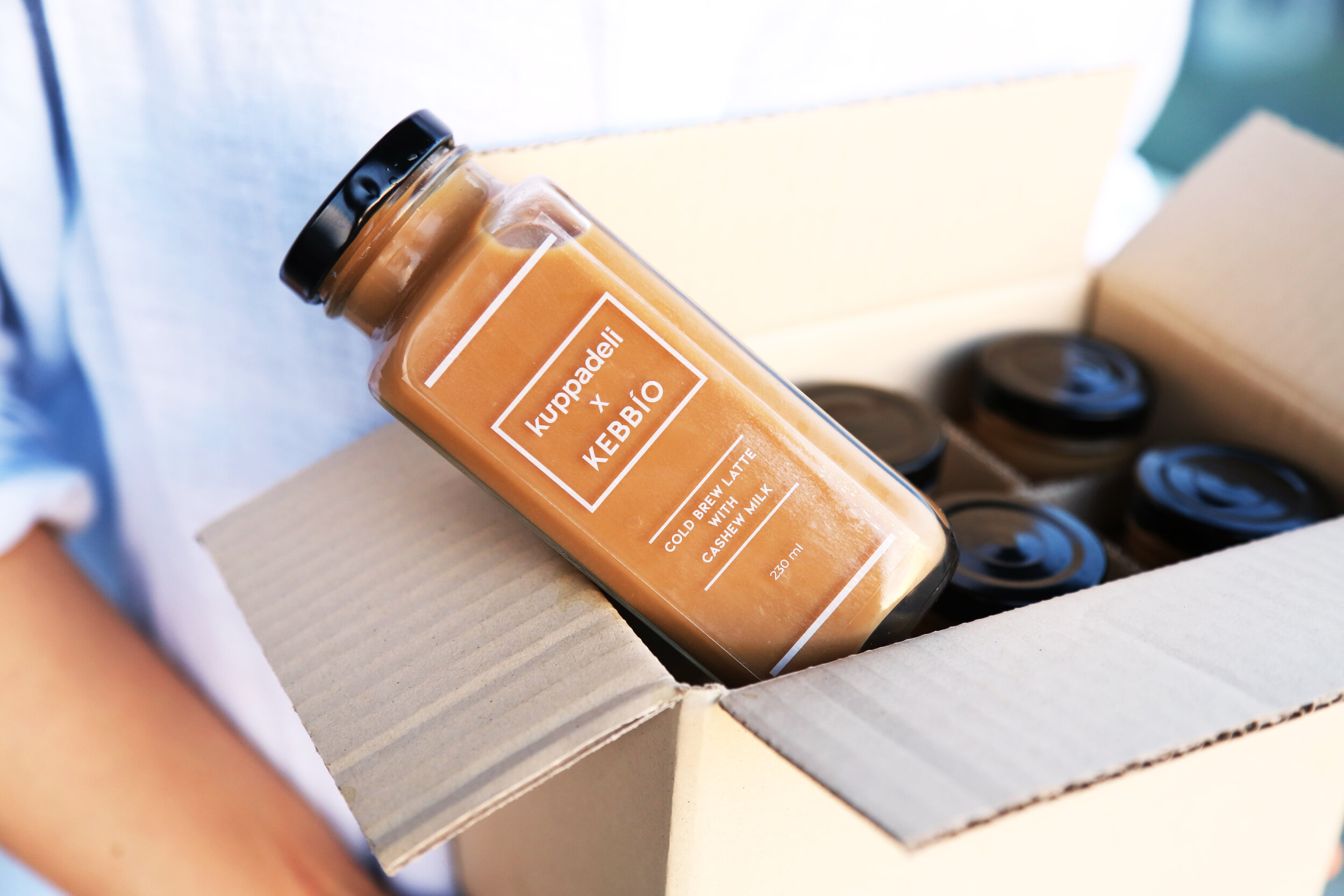Organic Cold Brew Latte — Collaboration with kuppadeli
kuppadeli has been a local go-to place in Bangkok for casual dining since 1998, and they were one of the first in city to roast their own coffee beans and create signature coffee blends.
With a similar vision for sustainability and high-quality products, we joined forces to collaborate and create an artisanal organic cold brew latte. After multiple taste tests, we decided to go with kuppadeli’s Peruvian coffee blend for its hazelnut and caramel notes, how well it goes with the creaminess of our KEBBÍO cashew milk, and because the coffee beans are organic. We wanted to create a delicious coffee drink that is truly healthy for both our bodies and the environment. This kuppadeli x KEBBÍO cold brew latte is freshly made in-house from only organic ingredients with no added sugars, preservatives, or emulsifiers, as we believe that great health and sustainability can go hand in hand.
See some bits in the organic cold brew latte? They’re just healthy fats from the cashew milk that have solidified — it’s completely normal because we don’t use any additives and emulsifiers to prevent this from happening! All you need to do is just leave it on the counter at room temperature for a few minutes, shake well, and it’ll be ready to enjoy. We take pride in being completely transparent with what we put into our products and strive to create them using as few and the most pure ingredients, so that it is of the highest quality for you.
Why should you drink organic coffee?
No chemical fertilisers and pesticides are used when farming organic coffee, which means no chemicals in the cold brew latte that you are consuming, which can greatly affect our health and lead to chronic diseases in the future.
Other beneficial farming practices are generally used on organic farms, such as proper crop rotation, which improves soil quality. Healthy soils = healthy crop, so you are consuming something with better nutritional quality.
Better for the environment: Chemical fertilisers leach into the local water supply and causes water pollution and affects the natural ecosystem of the area.
There are also quite a few reasons why you should drink coffee*. We’ve summarised some health benefits of taking caffeine— in moderation!
Caffeine has been shown to help enhance physical performance and recovery time after sports and exercise, enabling you to push harder in the gym (more forceful muscle contractions, more energy used!).
Caffeine may also help boost metabolism; some studies have shown that metabolic rate and fat oxidation increased significantly after ingestion of coffee.
Increases focus and helps keep you alert. Studies have also shown that caffeine may also help boost memory and increase memory consolidation.
Coffee may also reduce your risk of brain diseases such as Alzheimer’s and Parkinson’s disease.
As with anything and everything that we do, moderation is key. Too much caffeine could affect your sleep and could cause anxiety. Experts recommend not drinking coffee after 12 p.m. due to the long half-life of coffee and its inhibitory effect on adenosine receptors (tiredness receptors) in the brain that are responsible for creating “sleep pressure” in the brain.
Tried our cold brew latte? Let us know!
Order through LINE Shop or KEBBÍO online shop!
Sources:
https://amosinstitute.com/blog/the-health-impacts-of-chemical-fertilizers/
“Caffeine Improves Physical and Cognitive Performance During Exhaustive Exercise”, Hogervorst et. al., Oct 2008. https://pubmed.ncbi.nlm.nih.gov/18799996/.
“Caffeine and Anaerobic Performance: Ergogenic Value and Mechanisms of Action”, Davis, Green. 2009. https://pubmed.ncbi.nlm.nih.gov/19757860/.
“Caffeine and Coffee: Their Influence on Metabolic Rate and Substrate Utilization in Normal Weight and Obese Individuals”, Acheson et. al., May 1980, https://pubmed.ncbi.nlm.nih.gov/7369170/
“The Influence of Caffeine Expectancies on Simulated Soccer Performance in Recreational Individuals”, Shabir et. al., September 2019. https://pubmed.ncbi.nlm.nih.gov/31557945/

